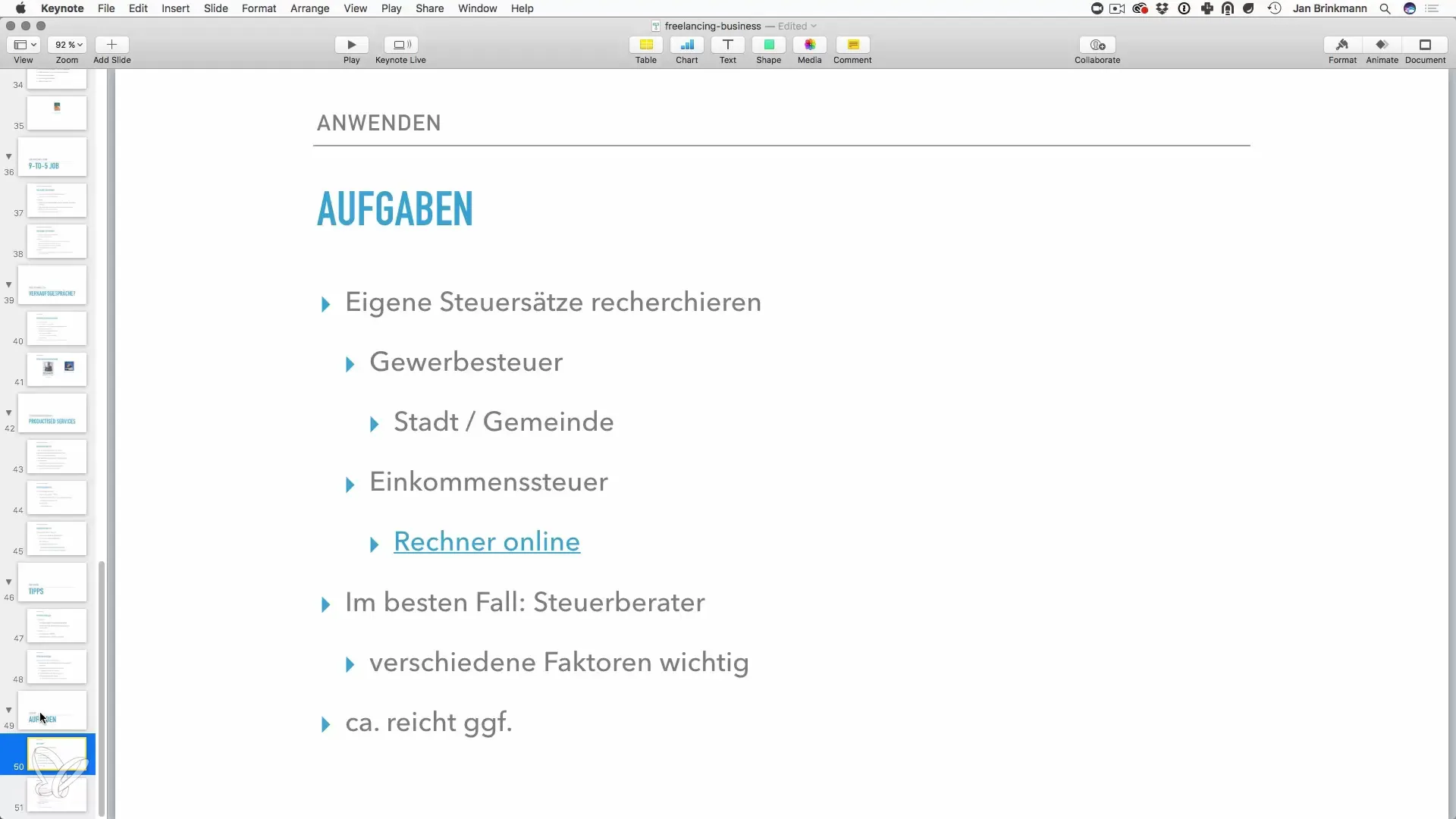The path to self-employment as a freelancer can be challenging, but there are a variety of practical tasks that can help you start successfully. In this guide, I will present you with important steps and tasks that you should tackle to establish your business foundation on a solid basis.
Key Insights
- Research your tax rates and create a rough cost plan.
- Calculate your hourly rate.
- Take care of invoicing and financial management.
- Start implementing your orders early.
Step-by-Step Guide
Research Tax Rates
Before starting your business, it is essential to know your tax rates. This means informing yourself about the business tax and the assessment rate in your city or municipality. Additionally, income tax should be considered, as it directly depends on your income level. Although it is difficult to calculate this exactly in advance, you can make a rough estimate to plan better. Consider how much you want to earn at a minimum and what taxes could be deducted from that.

Seek Tax Advice
If you are serious about your self-employment, it is advisable to consult a tax advisor or business consultant. This ensures that you can play out the different scenarios that might come your way and consider all necessary factors. Tax law is often complex and individual, so professional advice can give you a better understanding of your tax situation.
Calculate Hourly Rate
To determine your hourly rate, it is important to create a rough estimate of your monthly expenses. This includes not only personal expenses but also costs for your business such as hosting, domains, software, and possibly even email services. After you have gathered the costs, determine your available working days per month. Assume you have about 16 working days a month and calculate it all out to know what hourly rate you need to cover your expenses and achieve a sustainable income.
Create Invoices
Now it gets concrete: to monetize your services, you need to learn how to create invoices. Programs like Billomat or FastBill are excellent tools that help you easily create invoices and keep track of your finances. You can also use a simple invoice template and write invoices yourself to get a feel for the formalities that come with self-employment.
Implement First Orders
There is no better teaching tool than implementing your first assignments. Use the insights you gained from the previous steps and start processing orders quickly. This not only gives you the necessary confidence, but it also helps you refine your individual pricing strategy as you find out which types of orders bring you the most joy.
Summary – Business Establishment for Freelancers – Practical Business Tasks for Starting Out
In summary, it is important for a successful business establishment to tackle administrative tasks early on. From researching your tax rates and calculating your hourly rate to creating invoices and executing your first orders – all these steps are crucial for your success as a freelancer.
Frequently Asked Questions
What should I know about tax rates?Research the business tax, the assessment rate in your city, and income tax.
Why is a tax advisor important?A tax advisor helps you consider all relevant tax factors and ensures that you are well-informed.
How do I calculate my hourly rate?Add up all monthly expenses and divide them by the number of hours worked to calculate a fair hourly rate.
How do I create an invoice?Use software like Billomat or FastBill to make invoicing easier or use a simple template.
When should I start working?Start your freelance work as early as possible to gain experience and move your business forward.


